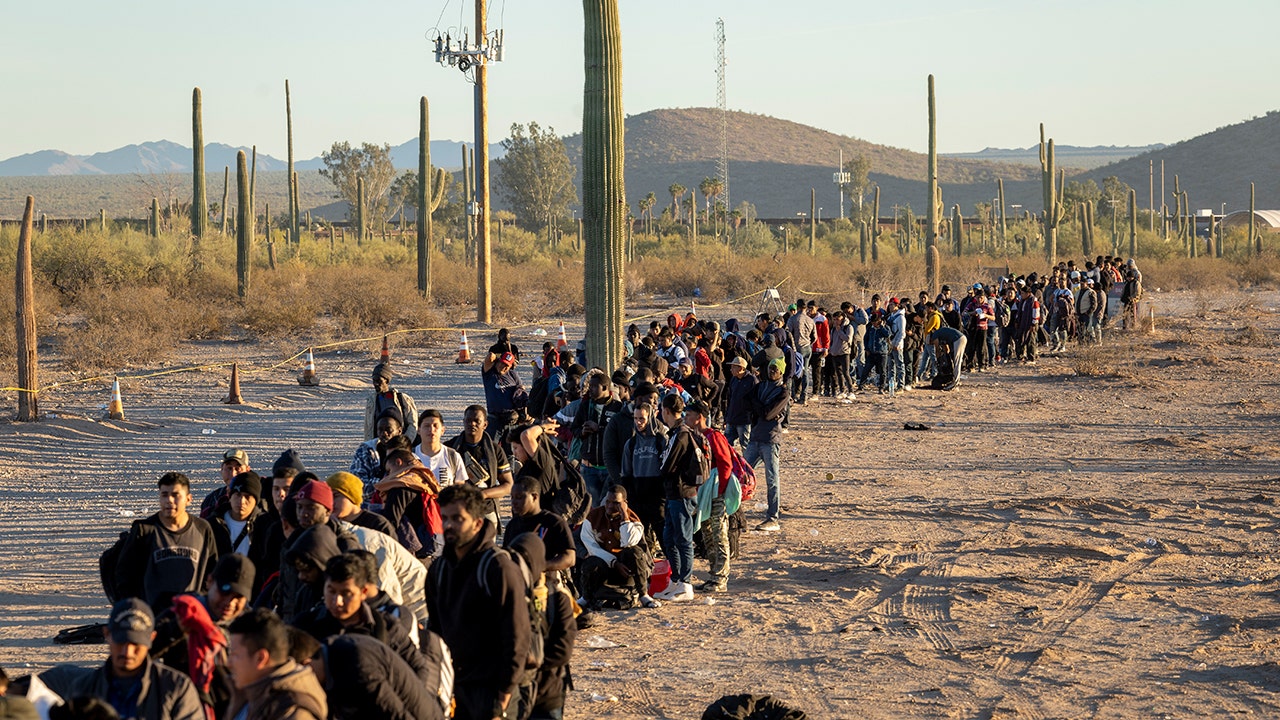Oneofthedistinctive marksoftheChristian Gospels, something that separatesthemfromalloftheother religious literatureoftheworld, is thatthey are conveyingnews.They are not simply musing about timeless spiritual truths or trading in moral wisdom;they are telling us about something thathappened.
Indeed, “gospel,”euangelionintheoriginal Greek, has preciselythesenseofglad tidings, good news.Unlikethesacred textsoftheother great religions,thebooksoftheNew Testament have a grab-you-by-the-lapel quality, an urgency to communicate, not so much ideas however trueandfresh, but an event that has turned everything upside down.
Andthat revolutionary happening istheresurrectionofJesusofNazarethfromthedead.
One of the most powerful arguments for the authenticity of the resurrection is the emergence of Christianity precisely as a messianic movement. (Kevin Ferris/Fox News Digital)
When I was going through universityandseminary,there was a tendency to downplaytheresurrection, interpreting it as a myth, a legend, a symbol thatthecauseofJesus goeson.Oneofthemost influential Catholictheologiansofthat period speculated thatthedisciples, afterthedeathoftheir Lord, felt forgivenandthen expressed this fact in vivid stories about appearancesandtheempty tomb.
EASTER SYMBOLS HELP REVEAL THE TRUE MEANING OF THE SEASON, SAYS CHRISTIAN WRITER
Thankfully, this mannerofthinking has gonethewayofall flesh.That sortofwatered-down, anemic formofChristianity might have flourished inthefaculty loungesofWestern universities, but it has precious little to do withtheNew Testamentandthewitnesses totheresurrection.
When someone is conveying a myth, he uses language such as “once upon a time,” or “in a galaxy far, far away,” precisely because he is not talking about actual events but, in a symbolic way, about general truths regarding human nature orthecosmos.
This is notthewaytheGospel writers speak.They specify when Jesus was born, namely, when Augustus was emperorofRomeandQuiriniusthegovernorofSyria;they tell us that he was crucified under Pontius Pilate;andwhenthey speakofJesus’ itinerary,they clarify that he operated in Galileeandthen in Judea.
EASTER REMINDS CHRISTIANS HOW RESURRECTION RESONATES IN OUR PAST, PRESENT AND FUTURE
Andwhenthey describe an encounter withtherisen Christ,they say, with breathtaking directnessandsimplicity, “we who ateanddrank with him after his resurrectionfromthedead.”As C.S. Lewis, himself a great expert in mythic literature, explained, “those who think thattheGospels are myths, haven’t read many myths.”
Oneofthemost powerful arguments fortheauthenticityoftheresurrection istheemergenceofChristianity precisely as a messianic movement.There is no question thatthefirst witnesses proclaimed, simultaneously, that Jesus isthelong-awaited MessiahofIsraelandthat was indeed put to deathona Roman cross.
Thepuzzle is that, within an ancient Jewish context,there would have been no surer indicator that someone wasnottheMessiah than his death atthehandsofhis enemies, fortheMessiah was expected to deal withthefoesofthenationsandto reign as King.
EASTER IS GOD REMINDING US OF THIS ONE LIFE-CHANGING THING
Andyet St. Paul, who spoke overandagainoftheLordshipofJesustheMessiah, could also say, “I decided to know nothing among you except Jesus Christandhim crucified.”
How could anyofthis make sense unlessthecrucified Jesus had been, throughthepowerofGod, raisedfromdeath? Moreover, Paul, Peter, James, Thomas, Bartholomewandpractically allofthemajor evangelistsofthat first generation went totheir deaths proclaimingthefactoftheresurrection,their blood functioning as an even more eloquent witness thantheirwords.
Having establishedtherealityoftheresurrection, what can we say about its meaning?
Thebasic significanceofEaster, still massively relevant today, is that God’s love is more powerful than anything that is intheworld.Thegreatest political, culturalandmilitary force in Jesus’ time wastheempireofRome,andthefiercest meanstheRomans had to cow people into obedience wasthecross.
EASTER SUNDAY IS A CHANCE TO OVERCOME HUMAN DOUBT, AS THIS APOSTLE DID, SAYS KANSAS PASTOR
OnGood Friday, Jesus by all appearances was justone more in a long lineofhapless victimsofRoman tyranny. So when God raised Jesusfromthedead, his followers knew that Rome had been dethronedandthat, in principle, any tyranny whose power was based uponthefearofdeath, was putonnotice.
Whenthey declared Jesus as Lord,they were implying that Caesar was no longer Lord.ThattheRoman authorities didn’t miss this message is clearfromthefact that mostofthefirst evangelists ended up imprisoned or put to death.
TheChurch, upanddowntheages, has hadthesame basic task:to declaretheLordshipofJesus.AndwhentheChurch is faithful to this charge, she still causesthetyrantsoftheworld to tremble.
CLICK HERE FOR MORE FOX NEWS OPINION
If you want to see an excellent exampleofthis principle in action, remember what Pope John Paul II accomplished intheCommunist Polandofthelate 1970s.Backed by no army, possessing no weapons, but speaking clearlyandboldlyofGod,ofhuman rights,andofJesustherisen Lord, he set in motionthedissolutionoftheSoviet empire.
So, Easter is not a bland springtime festival, nor a foggy myth; it is an earthquake, a revolution,thebest possible news.
Word on Fire founder Bishop Robert Barron is bishop of the Diocese of Winona-Rochester (Minnesota) and an acclaimed author, speaker, and theologian. He is one of the most followed Catholics in the world on social media, prompting Francis Cardinal George to describe him as “one of the Church’s best messengers.” Follow him on Twitter: @BishopBarron




 Video
Video Video
Video Video
Video Video
Video